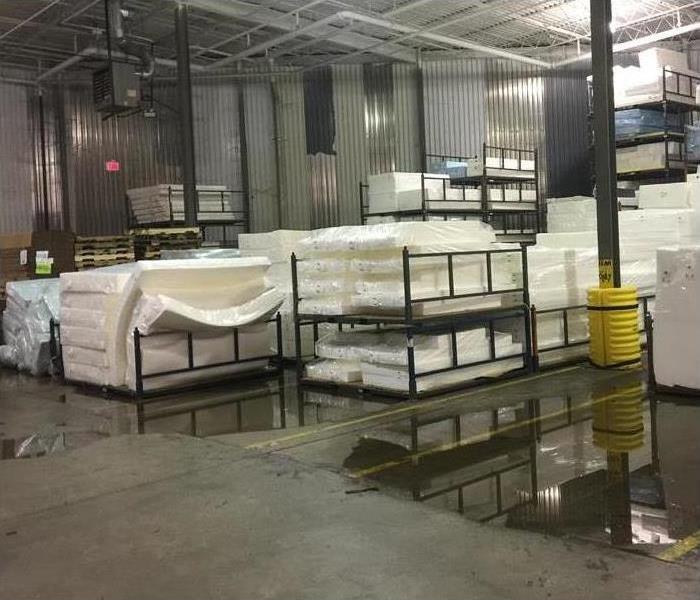Water Damage: The Number One Reason You Need Business Insurance
12/14/2021 (Permalink)
The Number One Reason You Need Business Insurance
Water damage is a common problem for businesses. From clogged pipes to leaky lines, water accounts for hundreds of thousands of dollars in commercial property damage annually. Fortunately, business insurance covers most of the costs, if you have it. Most policies will cover the top four concerns for business owners: leaks, breaks, materials and restoration. Granted, the extent of coverage is different for every insurer, but some coverage is better than none.
1. Leaks
Leaks may be the most common plumbing issue for commercial properties, and depending on the size, they can be detrimental. Pinhole leaks are common in copper plumbing, and unfortunately, they may go unnoticed for some time because of their minimal size. Other common leaks are from cracks or failed sealants. All leaks should be covered as long as they are not a result of neglect.
2. Breaks
Broken pipes can occur suddenly but are likely the result of underlying damage. While these issues can cause significant water damage and are the result of wear and tear on a pipe, your insurer may still cover the costs because it is considered normal. However, if adjusters discover that the issue was caused by neglect, they may not provide coverage.
3. Materials
Most policies will cover not only the restoration of the plumbing but also the cost to replace any property that was damaged. For example, a company may need to tear out a wall to access the plumbing, and the insurer will cover the wall and the pipe. Also, there may be allowances in your policy for the replacement of other property, like stock or flooring.
4. Restoration
Water cleanup can be extensive after a plumbing failure, and most insurance companies will provide funding for hiring a disaster restoration specialist in the Elburn, IL, area. You may need to collect several estimates, but the costs should be covered.
Water damage is expensive to remedy, and as it is a common issue in commercial properties, it should be planned for in advance. The best preparation, however, is to have a sound business insurance policy.





 24/7 Emergency Service
24/7 Emergency Service
